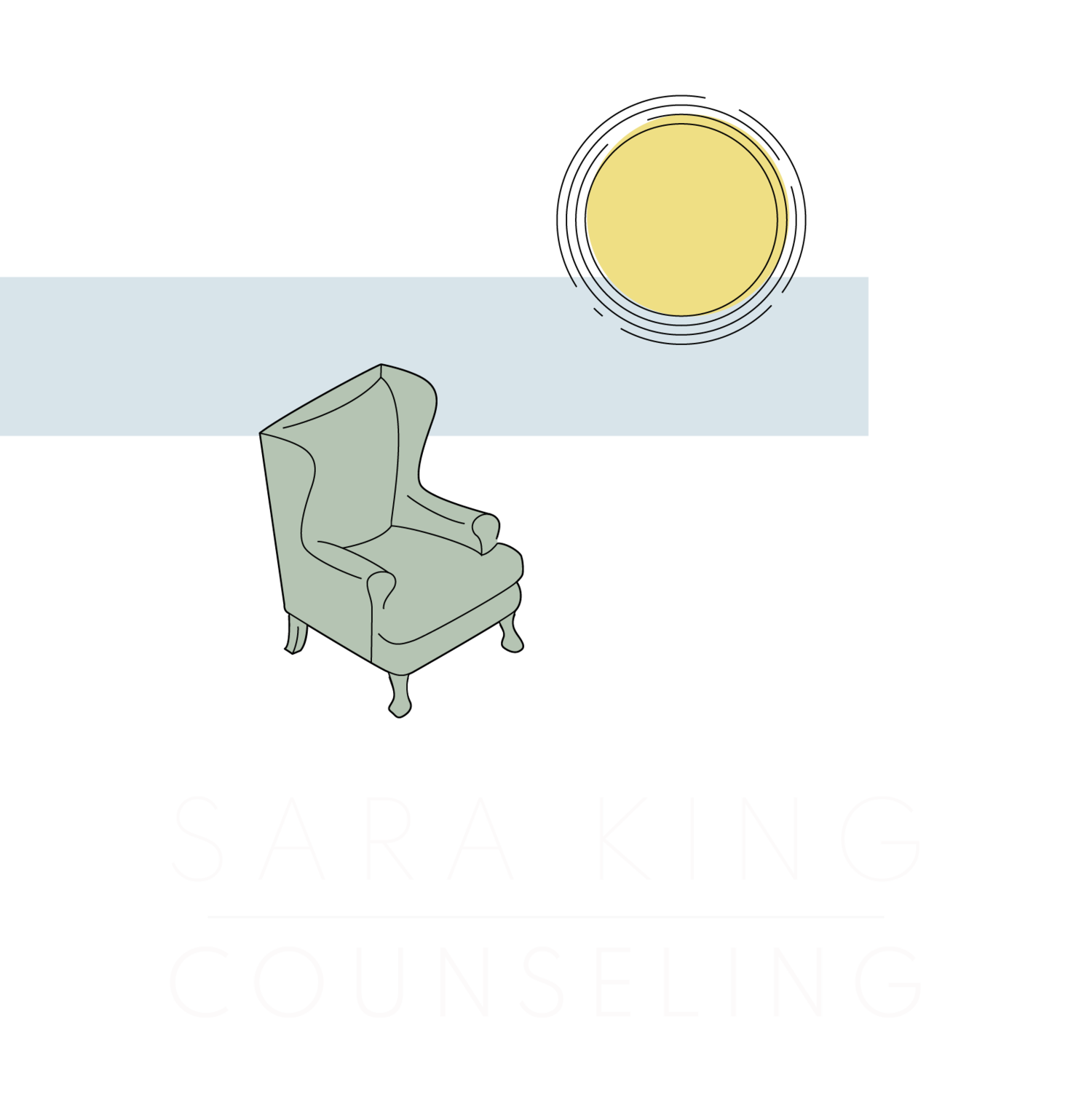+ What types of issues do you work with?
I enjoy working with most diagnoses, including anxiety, depression, relational issues, life transitions and personality disorders. My specialties are working with those who have disordered eating/body image and traumatic experiences. One’s perception of a trauma may vary greatly so, if you feel impacted by difficult experiences and are struggling to cope, I encourage you to reach out to me to see if we would be a good fit for each other.
+ What ages do you work with?
I love working with all ages but I would say eight years and older is my sweet spot!
+ Where were you educated?
B.S. in Psychology from University of Nebraska- Kearney
M.S. in Clinical Mental Health Counseling from University of Arkansas
+ What are you trained in?
I am a Certified Eating Disorder Specialist (CEDS) through the International Association for Eating Disorder Professionals (IAEDP)
I am trained in Eye Movement Desensitization and Reprocessing (EMDR)
(https://www.emdrconsulting.com/what-is-emdr/)
https://www.emdrconsulting.com/find-a-therapist/
I am a Certified Intuitive Eating Counselor https://www.intuitiveeating.org/certified-counselors/
and I hold certification in psychotherapy with Highly Sensitive People (HSP)https://hsperson.com/therapists/seeking-an-hsp-knowledgeable-therapist/arkansas/
I have received over 500 hours of training as a yoga instructor (https://www.yogaalliance.org/TeacherPublicProfile?tid=295895)
I am pursuing certification as a Somatic Experiencing Practitioner through Somatic Experiencing International.
I am also trained in Trauma Focused Cognitive Behavioral Therapy (TF-CBT). I have taken additional courses to expand my knowledge base in Internal Family Systems, Polyvagal Theory, Acceptance and Commitment Therapy, and Trauma-informed therapeutic practices.
+ What techniques do you use?
I hold space for clients as they acknowledge areas of discomfort, mentally and emotionally, and work to make sense, find purpose and understanding there. I encourage clients to identify how beliefs, past and present experiences, and troubling memories are creating distress in their lives. I support clients in this process through the use of body awareness exercises, mindfulness techniques, EMDR, parts work, sand-tray, and unconditional positive regard. I am grounded in Cognitive Behavioral Therapy, Intuitive Eating, Acceptance and Commitment Therapy, Internal Family Systems, Polyvagal Theory, Somatic Experiencing, Person Centered Theory, HAES (Health at Every Size), and the Adaptive Information Processing Model.
+ What insurances do you accept?
BCBS, Ambetter, Qualchoice
+ What is the cost of sessions?
Cost varies depending on your insurance and the deductible/co-pay included in that. Before our first session, I will look up your insurance and provide you information about the amount you will be responsible for, which is called a "Good Faith Estimate". That way you can decide if my services are a good fit for you. I also have a sliding scale rate if you do not have insurance I accept. Below is information about the Good Faith Estimate and how it protects you from being overcharged for services that you did not agree to.
*Good Faith Estimate shows the costs of services that are reasonably expected for your health care needs for a service. The estimate is based on information known at the time the estimate was created.
The Good Faith Estimate does not include any unknown or unexpected costs that may arise during treatment. You could be charged more if complications or special circumstances occur. If this happens, federal law allows you to dispute (appeal) the bill.
If you are billed for more than the Good Faith Estimate provided, you have the right to dispute the bill.
Sara King Outpatient Private Practice 5212 W. Village Parkway Suite 1 Rogers, AR 72758 479-544-0191 sara@sarakingcounseling.com (NPI): 1356717888 (TIN): 86-3019015
You may contact the health care provider or facility listed above to let them know the billed charges are higher than the Good Faith Estimate. You can ask them to update the bill to match the Good Faith Estimate, ask to negotiate the bill, or ask if there is financial assistance available.
You may also start a dispute resolution process with the U.S. Department of Health and Human Services (HHS). If you choose to use the dispute resolution process, you must start the dispute process within 120 calendar days (about 4 months) of the date on the original bill.
There is a $25 fee to use the dispute process. If the agency reviewing your dispute agrees with you, you will have to pay the price on this Good Faith Estimate. If the agency disagrees with you and agrees with the health care provider or facility, you will have to pay the higher amount.
To learn more and get a form to start the process, go to www.cms.gov/nosurprises or call HHS at (800) 368-1019.
For questions or more information about your right to a Good Faith Estimate or the dispute process, visit www.cms.gov/nosurprises or call (800) 368-1019.**
Keep a copy of the Good Faith Estimate in a safe place or take pictures of it. You may need it if you are billed a higher amount.**
+ How long do sessions last?
50-55 minutes.
+ How do I get started?
Fill out the inquiry form below and I will be in contact with you in the next 48 hours. Please, specify if you’d like to be contacted through text, call, or email.
